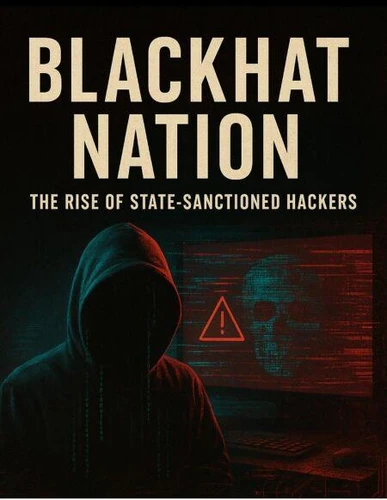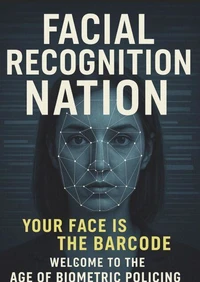Nouveauté
Blackhat Nation: The Rise of State-Sactioned Hackers. Ghost Series: Exposés from the Shadows
Par :Formats :
Disponible dans votre compte client Decitre ou Furet du Nord dès validation de votre commande. Le format ePub est :
- Compatible avec une lecture sur My Vivlio (smartphone, tablette, ordinateur)
- Compatible avec une lecture sur liseuses Vivlio
- Pour les liseuses autres que Vivlio, vous devez utiliser le logiciel Adobe Digital Edition. Non compatible avec la lecture sur les liseuses Kindle, Remarkable et Sony
 , qui est-ce ?
, qui est-ce ?Notre partenaire de plateforme de lecture numérique où vous retrouverez l'ensemble de vos ebooks gratuitement
Pour en savoir plus sur nos ebooks, consultez notre aide en ligne ici
- FormatePub
- ISBN8231239504
- EAN9798231239504
- Date de parution05/08/2025
- Protection num.pas de protection
- Infos supplémentairesepub
- ÉditeurWalzone Press
Résumé
"Black Hat Nation: The Rise of State-Sponsored Hackers" delves into the increasingly pervasive and alarming world of nation-state hacking. The book exposes how governments around the globe are actively recruiting, training, and deploying elite hacking teams to conduct espionage, sabotage, and even warfare in the digital realm. It unveils the motives behind this cyber arms race, ranging from stealing intellectual property and disrupting critical infrastructure to influencing elections and spreading disinformation.
Orestes examines the tactics, techniques, and tools used by these state-sponsored hackers, often blurring the lines between national security and criminal activity. Furthermore, "Black Hat Nation" explores the challenges of attribution and the difficulties in deterring these attacks. It raises critical questions about international law, cybersecurity policy, and the future of warfare in an era where digital aggression can have devastating real-world consequences.
The book serves as a stark warning about the growing threat posed by state-sponsored hacking and the urgent need for a more robust and collaborative global response
Orestes examines the tactics, techniques, and tools used by these state-sponsored hackers, often blurring the lines between national security and criminal activity. Furthermore, "Black Hat Nation" explores the challenges of attribution and the difficulties in deterring these attacks. It raises critical questions about international law, cybersecurity policy, and the future of warfare in an era where digital aggression can have devastating real-world consequences.
The book serves as a stark warning about the growing threat posed by state-sponsored hacking and the urgent need for a more robust and collaborative global response
"Black Hat Nation: The Rise of State-Sponsored Hackers" delves into the increasingly pervasive and alarming world of nation-state hacking. The book exposes how governments around the globe are actively recruiting, training, and deploying elite hacking teams to conduct espionage, sabotage, and even warfare in the digital realm. It unveils the motives behind this cyber arms race, ranging from stealing intellectual property and disrupting critical infrastructure to influencing elections and spreading disinformation.
Orestes examines the tactics, techniques, and tools used by these state-sponsored hackers, often blurring the lines between national security and criminal activity. Furthermore, "Black Hat Nation" explores the challenges of attribution and the difficulties in deterring these attacks. It raises critical questions about international law, cybersecurity policy, and the future of warfare in an era where digital aggression can have devastating real-world consequences.
The book serves as a stark warning about the growing threat posed by state-sponsored hacking and the urgent need for a more robust and collaborative global response
Orestes examines the tactics, techniques, and tools used by these state-sponsored hackers, often blurring the lines between national security and criminal activity. Furthermore, "Black Hat Nation" explores the challenges of attribution and the difficulties in deterring these attacks. It raises critical questions about international law, cybersecurity policy, and the future of warfare in an era where digital aggression can have devastating real-world consequences.
The book serves as a stark warning about the growing threat posed by state-sponsored hacking and the urgent need for a more robust and collaborative global response






















